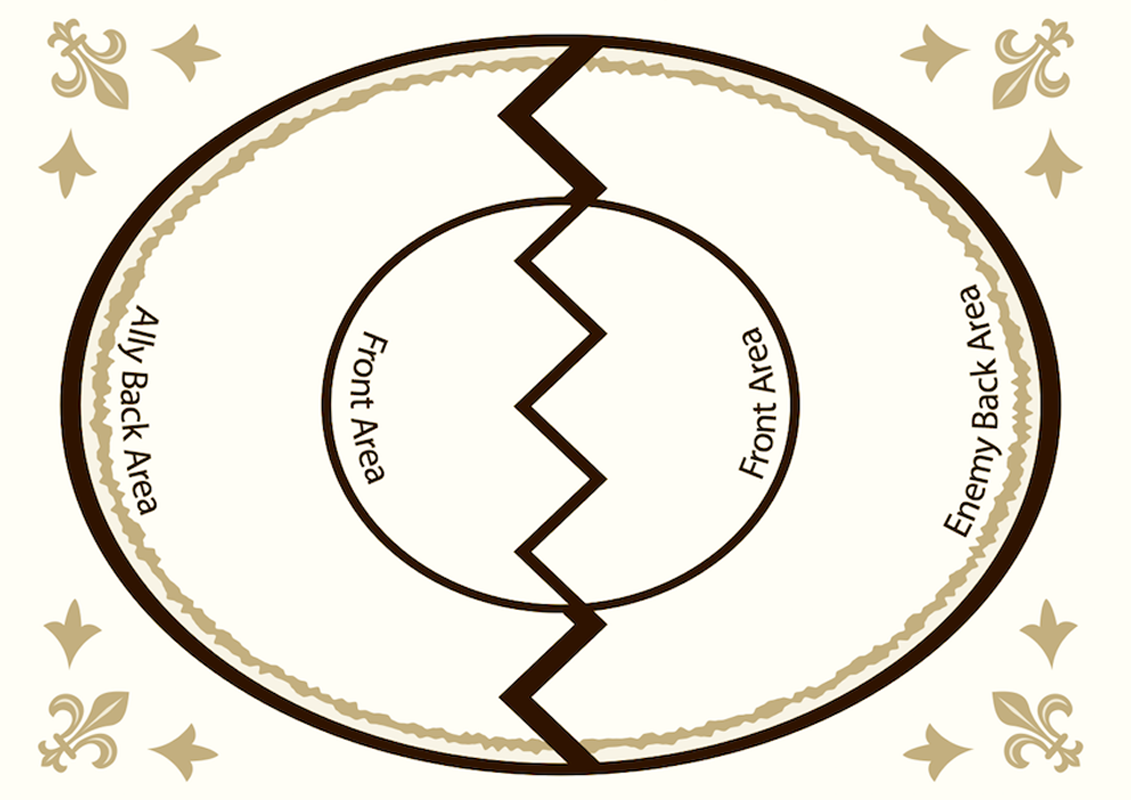Fighting
Hands
All combat actions are broken up into 3 hands. Rock●, Paper□, and Scissors<. When fighting with an enemy you will each throw out an ability, comparing the hands to assess effectiveness. This respects the law of Rock● beats Paper□ beats Scissors< beats Rock●. With a tie being when 2 of the same hand are thrown.
Stances
Actions are also divided between two Stances; Offensive† and Defensive‡. Offensive† is the typical Stance. It targets an enemy and defends from that same enemy. The Defensive‡ Stance targets only one enemy but defends from all.
Zones
There are 4 zones in a typical combat encounter. These are Forward↑ and Rearward↓ for allies and enemies. Certain combat actions are also divided into Forward and Rearward, meaning they can only be used while in those Zones. If an ability doesn’t specify a zone it can be used in any⇵.
 Combatants in Forward are paired together with the most numerous group in Forward deciding the pairings. Leaving anyone left over to choose their own target. While combatants in Rearward may target whoever they choose.
If a sides Forward is empty then everyone on that sides Rearward is considered to be Forward.
Combatants in Forward are paired together with the most numerous group in Forward deciding the pairings. Leaving anyone left over to choose their own target. While combatants in Rearward may target whoever they choose.
If a sides Forward is empty then everyone on that sides Rearward is considered to be Forward.
Basic Actions
Everyone has access to the following Actions.
- Attack (●□<) † ⇵
- Deal 4 damage on a win, or 2 on a tie.
- Defend (●□<) ‡ ⇵
- Deal 2 damage on a win.
Conditions
There are 3 Conditions Stoned, Folded, and Dulled. Each one is associated with a Hand. Stoned to Rock●, Folded to Paper□, and Dulled to Scissors<. While afflicted with one of these Conditions you cannot throw that respective Hand. Unless stated otherwise you recover from a condition after one round.
Fleeing
If the party agrees to retreat then bar dire circumstances they escape. Each character that escaped gains 2d3 Stress. Any items dropped in the pursuit are lost to the dungeon. Fleeing in this way leaves any fallen or captured ally behind, unless you are holding the fallen and have the slots to do so. The average human is 6 Slots and dragging allows you to ignore their encumbrance.